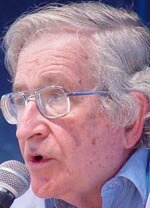The state has argued before the Supreme Court and the International Court of Justice in The Hague that the route of the separation barrier was based on Israel’s security needs. But Civil Administration’s maps and figures, disclosed here for the first time, suggest the barrier route was planned in accordance with the available land in the West Bank, intended to increase the area and population of the settlements.
International Law
Human Rights Council votes to dispatch a fact-finding mission to investigate the effects of Israel’s settlements on Palestinians; Netanyahu calls council ‘hypocritical’ and out of touch with reality.
It is Amnesty International’s assessment that the reasons for Ahmad Qatamesh’s arrest and continued administrative detention are his peaceful expression, in his writing and teaching, of non-violent political views and the fact that he is considered a mentor for left-wing students and political activists, some of whom may be affiliated to the PFLP. As such, his detention may be part of the Israeli authorities’ strategy to put pressure on the PFLP organisation. Therefore, Amnesty International considers him to be a prisoner of conscience and is calling for his immediate and unconditional release.
Having trapped themselves in a death struggle with Palestinians that they cannot acknowledge or untangle, Israelis have psychologically displaced the source of their anxiety onto a more distant target: Iran. An Iranian nuclear bomb would not be a happy development for Israel. Neither was Pakistan’s, nor indeed North Korea’s. The notion that it represents a new Holocaust is overstated, and the belief that the source of Israel’s existential woes can be eliminated with an airstrike is mistaken. But Iran makes an appealing enemy for Israelis because, unlike the Palestinians, it can be fitted into a familiar ideological trope from the Jewish national playbook: the eliminationist anti-Semite.
IOA Editor: Finkelstein’s treatment of Palestinian rights reflects the limitations of relying exclusively on international law in the defense of Palestinian rights. Rather than forcing 100 years of history and a national liberation struggle into a legal brief, Finkelstein will do well to reconsider the implications of his focus on the “destruction of Israel” — a regional nuclear superpower — presumably by BDS activists, rather than focusing on 1948 Palestinian refugee rights and those of Palestinian citizens of Israel. As he must know, most Palestinians do not compartmentalize their national history as he appears to be doing.
Adalah: “When the issue of ‘equality’ for Palestinian citizens of Israel is seen as a political rather than a constitutional question, it is then a short step to also view human rights groups that strive to achieve the rights of dignity and equality for Palestinian citizens as political organizations, and the Supreme Court’s jurisprudence in such cases as political, and thus subject to intervention by the Knesset. However, the Knesset’s interference in the work of the Supreme Court threatens the fundamental principle of the separation of powers.”
The following statement will be distributed to the International Committee of the Red Cross, Israeli officials, and the US State Department urging immediate action for the freedom of Khader Adnan. Please join.
Israel’s High Court of Justice scheduled a petitions hearing regarding the case of Khader Adnan on Thursday, 23 February 2012. The High Court of Justice was provided with a detailed medical report prepared on 14 February by an Israeli-accredited doctor on behalf of Physicians for Human Rights-Israel. Despite the elaborate medical report, which confirmed that Khader Adnan “is in immediate danger of death,” and that “a fast in excess of 70 days does not permit survival,” the Israeli High Court appointed the petition session for 23 February with no guarantees that a decision will be made on the same day. By then, Khader Adnan—if alive—will have reached the 68th day of his ongoing hunger strike.
UPDATED Israel’s Supreme Court moves up Khader Adnan’s hearing to 21 Feb, 2012.
The world watches as tragedy unfolds beneath its gaze. Khader Adnan is entering his 61st day as a hunger striker in an Israeli prison, being held under an administrative detention order without trial, charges, or any indication of the evidence against him. The Palestinian prisoner’s case is a microcosm of the unbearable cruelty of prolonged occupation.
Coverage of Khader Adnan, a Palestinian prisoner held by Israel under administrative detention, as his hunger strike enters its 61st day.
Sarah Leah Whitson: “Israel should end, today, before it’s too late, its almost two-month-long refusal to inform [Khader] Adnan of any criminal charge or evidence against him.”
One thing is beyond any doubt: a major aim of Israel’s foreign policy is the overthrow of the Iranian regime. What is not generally understood are the motives behind this aim, and the present Israeli government’s preferred means of achieving it. Moshé Machover covers the motives and explains why prime minister Binyamin Netanyahu’s preferred means is war – one that is likely to ignite a major conflagration.
Marian Houk: Ethnic Cleansing continues – Israeli lawyers tell UN Palestinian Jerusalemites targeted
Michael Sfard: “It’s the first report of its kind which, looking from a bird’s-eye view, sees not just demolitions, not just loss of residency, and not just discrimination between Jewish and Palestinian [inhabitants] – but also displacement based on ethnic origins.”
New Facebook group asks Prime Minister to postpone any plans to a strike of Iran’s nuclear facilities until after the Queen of Pop’s planned May 29 visit.
IOA Editor: On the trivialization of the ‘inevitable’ war with Iran, possibly the largest ever Middle East war, with consequences too unthinkable to consider.
There are tens of thousands of Jerusalem-born Palestinians who have been stripped of their residency status in the city by heartlessness disguised as Israel’s residency law. Celebrities make no special effort to defend these people’s natural-born right to live in their own city. The Jerusalem District Prosecutor’s Office is now accusing two of them, Mohammed Totah and Khaled Abu Arafa, of staying in the city illegally.
Annual report lists Israel’s blockade of Gaza Strip, settlement expansion in West Bank, and home demolitions in East Jerusalem; report also accuses Hamas for carrying out judicial executions and for allegedly torturing detainees.
The current report holds that, among other things, Israel is working to annex the Eastern part of Israel – a policy that the European Union sees as illegal, and holds that Israeli policies in East Jerusalem are “increasingly undermining the feasibility of Jerusalem as the future capital of two states.”
“Some 450,000 Israeli settlers on the West Bank use more water than the 2.3 million Palestinians that live there… In times of drought, in contravention of international law, the settlers get priority for water… Israel’s territorial expansion is seen as a ‘water occupation’ of both streams and aquifers…”
Using phrases that imply Israel is conducting a policy of ethnic cleansing of Palestinians in Area C, the report notes the Palestinian population has shrunk dramatically to only 150,000, compared to as many as twice that number in the Jordan Valley alone in 1967. The Jewish population in the settlements, meanwhile, has grown to 310,000, tripling in less than 20 years.
Survey by European Heads of Mission in Jerusalem, Ramallah criticizes Israel for the ‘forced transfer’ Palestinians from Area C, defined by the Oslo Accords as those parts of the West Bank under full Israeli control.























